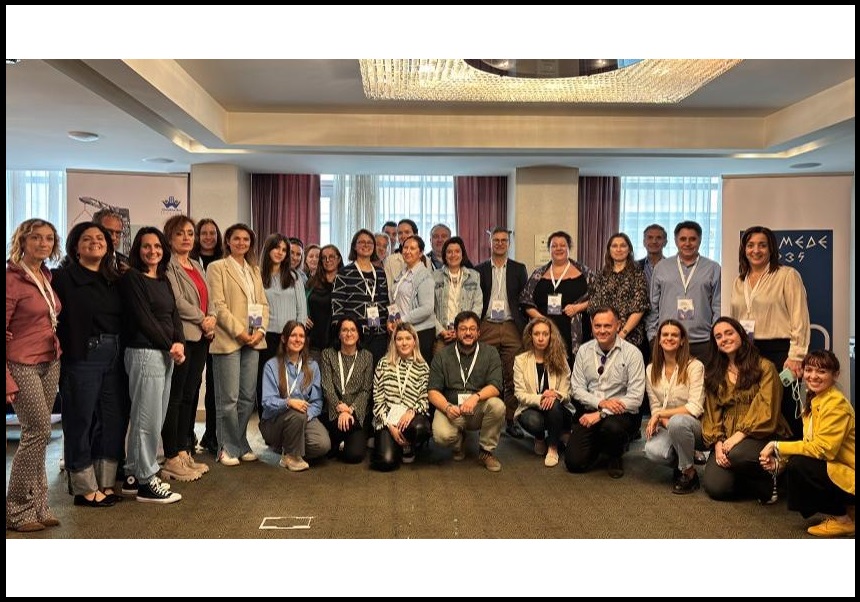
The European Construction Blueprint 2 project held its second transnational meeting in Athens, Greece, on October 8th and 9th. During the meeting, progress and tasks under development for the initiative were reviewed, such as updating the Construction Sector Skills Observatory and identifying urgent qualification needs in current professions in the same field and emerging skills.
Construction Blueprint 2 develops practical tools and strategies to anticipate emerging skills, update training plans, and better connect education with the real needs of businesses in a holistic way, from vocational training to higher education. It will also contribute to the Construction Skills Pact, supporting a skilled, competitive and sustainable European construction sector.
The meeting, organised by Greek partner organisation PEDMEDE, was attended by partners from 10 European countries, together with representatives from the European Commission. The Head of Policy at the Directorate-General for Internal Market, Industry, Entrepreneurship and SMEs (DG Grow), Roman Horvath, and the Head of Projects at the European Education and Culture Executive Agency (EACEA), Paolo Zancanella, highlighted the role of the initiative as a key element in advancing the preparation of construction workers and companies for the green and digital transition.
IRTIC's intervention focused on addressing urgent skills needs in continuing vocational education and training (CVET) related to construction.
The update of the Sector Skills Observatory, a key tool for identifying new skills required by the European labour market, and the identification of urgent qualification needs in current professions in the sector and emerging skills are some of the advances and tasks in progress that were discussed at the meeting held in Athens.
In addition, the design of continuing training programmes and curriculum content adapted to emerging demands was also discussed, as was the creation of a web platform that will bring together training resources available at the European level and facilitate access to training for professionals and entities in the sector, and the development of a European Construction Skills Strategy through the preparation of a roadmap and a training action plan, aligned with the objectives of sustainability and digitalisation.
Through this initiative, a training curriculum and online training programme will be designed, both structured around the skills needed to respond to the current and future challenges facing professionals in the sector. It will therefore cover energy efficiency and renewable energies, digitalisation and industrialisation, green and sustainable construction, cross-cutting skills, and promoting the attractiveness of the construction sector.
The Fundación Laboral de la Construcción, coordinator of the international consortium, is leading the development of the main results that will shape the European training strategy in response to the dual green and digital transition in construction. The organisation coordinated the first Construction Blueprint initiative, considered a benchmark by the European Commission for its impact on identifying training needs and promoting skills in digitalisation, sustainability and energy efficiency.
The current project will run for four years, from 2025 to 2028, and is part of the European Construction Skills Pact, which aims to strengthen the competitiveness and employability of the sector by updating qualifications and creating shared strategies between companies, administrations, unions and training centres.
The meeting also included the seminar ‘Awareness-raising actions with experts to promote the presence of women in construction, attract young people to the sector and address issues related to equal opportunities and non-discrimination’, led by the coordinator of the Skills and Labour Market Department at CEDEFOP (European Centre for the Development of Vocational Training), Jasper Van Loo.
In this regard, Van Loo presented a detailed analysis of the construction sector landscape, based on information gathered by Centro Europeo, and highlighted the strong demand for employment expected in the sector, driven mainly by the retirement of a large part of the current workforce, as well as the skills most in demand in the sector.











